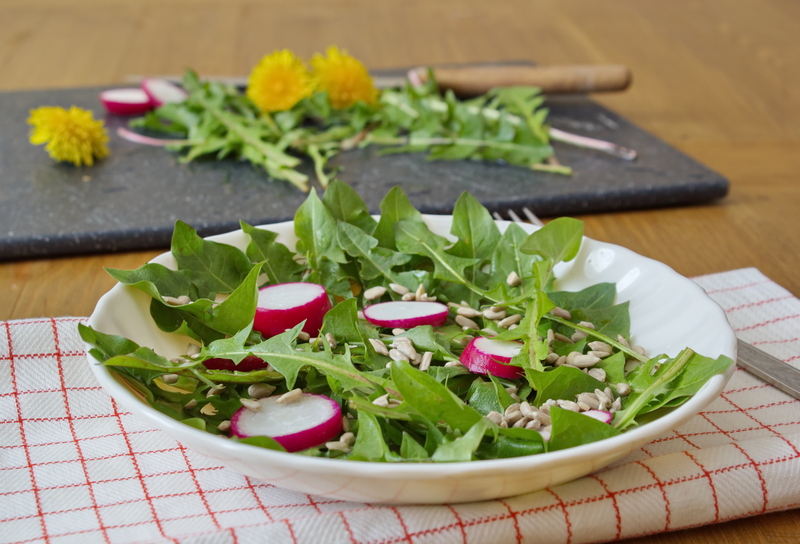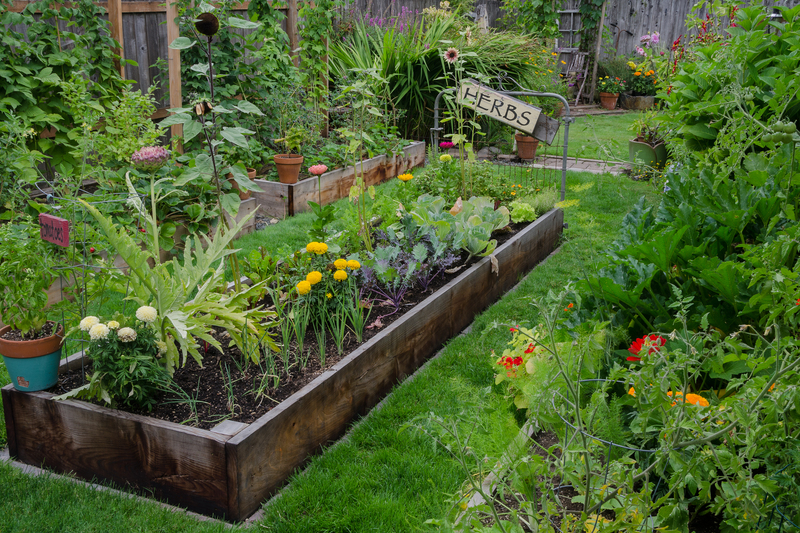Eco-Friendly Approaches to Protect Your Garden's Future
Posted on 11/09/2025
Eco-Friendly Approaches to Protect Your Garden's Future
Gardening is more than just a hobby; it's a way to connect with nature and contribute positively to the environment. With climate change and increasing environmental pressures, using eco-friendly approaches to protect your garden's future is more important than ever. From organic gardening practices to water conservation and natural pest management, implementing sustainable techniques helps create thriving, resilient green spaces. In this comprehensive guide, we'll explore innovative and practical methods to future-proof your garden while nurturing the planet.
Why Choose Sustainable Gardening?
Eco-friendly gardening empowers households and communities to contribute positively to environmental conservation. Using environmentally conscious gardening practices helps reduce harmful chemical runoff, enhances biodiversity, and supports a healthy ecosystem. Moreover, gardens maintained with sustainable practices are more resilient to pests, diseases, and climate variability.
- Reduces greenhouse gas emissions: Minimizing synthetic tool and fertilizer use shrinks your carbon footprint.
- Conserves water: Sustainable gardens are designed to use water efficiently, addressing growing water scarcity concerns.
- Promotes wildlife: Providing habitats and resources for beneficial insects, birds, and pollinators.
- Improves soil health: Organic amendments and techniques build healthy, fertile soil for generations.

1. Start with Soil Health
Understanding Soil Biology
Healthy soil is the cornerstone of an eco-friendly garden. It supports strong plant growth, reduces erosion, and cycles nutrients efficiently.
- Test your soil: Conduct a simple soil test to understand pH, texture, and nutrient levels.
- Amend with organic matter: Compost, well-rotted manure, and mulch not only feed plants but also improve soil structure and water retention.
- Encourage soil life: Avoid harsh chemical pesticides and fertilizers, which can disrupt beneficial microbes and earthworms.
Composting for a Greener Garden
Composting turns kitchen scraps, leaves, and yard waste into nutrient-rich amendments. This is one of the most effective eco-friendly gardening methods for reducing landfill waste and supporting plant health.
- Balance greens and browns: For optimal decomposition, mix carbon-rich (leaves, cardboard) and nitrogen-rich (vegetable scraps, grass clippings) materials.
- Keep compost moist but not soggy and aerate regularly to speed up the process.
2. Natural Pest and Disease Management
Encourage Beneficial Insects
Befriend nature's helpers! Attracting ladybugs, lacewings, and predatory beetles is a sustainable approach to pest control. Pollinators like bees and butterflies also enhance fruit and flower production.
- Plant native flowering species: These provide nectar and pollen throughout the season.
- Allow some "wild" spots in your garden for shelter and overwintering habitat.
- Avoid broad-spectrum pesticides, even organic ones, which may harm beneficial insects.
Practice Crop Rotation and Companion Planting
Rotating crops and combining compatible plants deters pests and interrupts disease cycles naturally.
- Rotate plant families: Move vegetables so crops from the same family don't grow in one spot year after year.
- Try companion planting: Pairing crops like tomatoes with basil or carrots with onions can repel pests and boost yields.
Organic Remedies for Common Problems
Instead of reaching for chemical solutions, opt for organic pest and disease management:
- Hand-pick pests: Remove beetles, caterpillars, and larger insects by hand.
- Spray with neem or insecticidal soap: These biodegradable products are safer for the environment.
- Use physical barriers: Row covers and netting protect seedlings from both insects and birds.
3. Water Conservation for Sustainable Gardens
Smart Watering Techniques
With droughts becoming increasingly common, efficient water use is crucial for eco-friendly gardens.
- Water early morning or evening: This reduces evaporation loss and delivers moisture when plants need it most.
- Use soaker hoses or drip irrigation for precise, slow watering that soaks into the root zone.
- Avoid overhead sprinklers that waste water and encourage disease spread.
Rainwater Harvesting
Collecting rain from rooftops is a sustainable and cost-effective way to supply your garden's water needs.
- Install rain barrels at downspouts to store runoff.
- Use stored water during dry spells to keep your plants healthy.
- Ensure barrels are covered to prevent mosquito breeding.
Mulching and Groundcover
Applying mulch around plants reduces water loss, controls weeds, and improves soil. Eco-friendly mulch options include:
- Wood chips
- Chopped leaves
- Straw or grass clippings (untreated)
Bonus: Groundcover plants like thyme or creeping phlox not only retain soil moisture but also add beauty.
4. Choosing Plants for the Future
Selecting Native and Climate-Resilient Species
Native plants are naturally adapted to your local climate, making them drought-tolerant, pest-resistant, and low-maintenance. When planning your garden's future:
- Prioritize native perennials: These come back every year, reducing the need for frequent replanting.
- Select climate-resilient varieties that can withstand extreme weather or uncertain rainfall patterns.
- Support pollinators and wildlife by planting a diversity of species.
Avoiding Invasive Species
Invasive plants out-compete natives, disrupt local ecosystems, and require more resources to control. Check with your local extension service or native plant society for a list of safe alternatives that support a sustainable gardening future.
5. Reducing Chemical Inputs
Go Organic
Switching to organic fertilizers and soil amendments ensures that your garden care practices are eco-friendly. Look for:
- Compost and well-aged manure
- Worm castings
- Rock dusts for minerals
Avoid quick-release synthetic fertilizers that can damage soil organisms, leach into waterways, and contribute to pollution.
Integrated Pest Management (IPM)
IPM blends multiple strategies--monitoring, prevention, and control--to manage pests responsibly. This method reduces unnecessary pesticide use and protects beneficial garden wildlife.
6. Eco-Friendly Garden Design and Landscaping
Embrace Permaculture Principles
Permaculture integrates sustainable land management ethics into garden and landscape design.
- Design with nature: Place plants based on sunlight, wind, water access, and companion needs.
- Use vertical gardening to maximize limited space and improve yield density.
- Include edible landscapes--fruit trees, berry bushes, and perennial vegetables add beauty and productivity.
Planting for Biodiversity
The more diverse your garden, the more robust and sustainable your ecosystem will be. Mix trees, shrubs, flowering plants, herbs, and groundcovers to:
- Attract pollinators: Diverse flowers throughout the season offer continuous food sources.
- Provide year-round habitat: Evergreens and dense shrubs shelter birds and insects during winter.
- Increase ecosystem stability, making your garden less prone to pests and diseases.
7. Eco-Friendly Tools and Materials
Opt for Sustainable Products
When building or maintaining your garden, choose sustainable, recycled, or upcycled materials whenever possible:
- Bamboo stakes or trellises instead of plastic or metal
- Recycled rubber or coconut fiber pots
- Hand tools made from responsibly sourced wood and steel
Maintain and Reuse Equipment
Extending the life of your tools reduces waste and saves money. Regularly clean, sharpen, and oil gardening equipment to keep it in top shape.

8. Community and Sharing for Sustainable Gardens
Get Involved in Local Garden Networks
Community gardening fosters knowledge exchange, boosts food security, and builds environmental resilience.
- Share seeds and plants: Exchanging plant material preserves genetic diversity and reduces costs.
- Organize tool libraries: Borrowing and sharing tools prevents unnecessary purchases and resource use.
- Join compost networks or drop-off points for a regular supply of organic amendments.
Conclusion: Nurture a Greener Tomorrow
Adopting eco-friendly approaches to protect your garden's future is a rewarding journey with long-lasting benefits. These methods not only sustain the beauty and productivity of your green space, but also ensure that your gardening contributes to healthier soil, cleaner water, richer biodiversity, and a more resilient planet. Start with small changes--composting, reducing chemicals, inviting pollinators--and build on your successes year over year.
Remember: Every plant you grow and every sustainable practice you adopt makes a difference. By viewing your work as part of a larger ecological picture, you'll be future-proofing your garden for generations to come.



